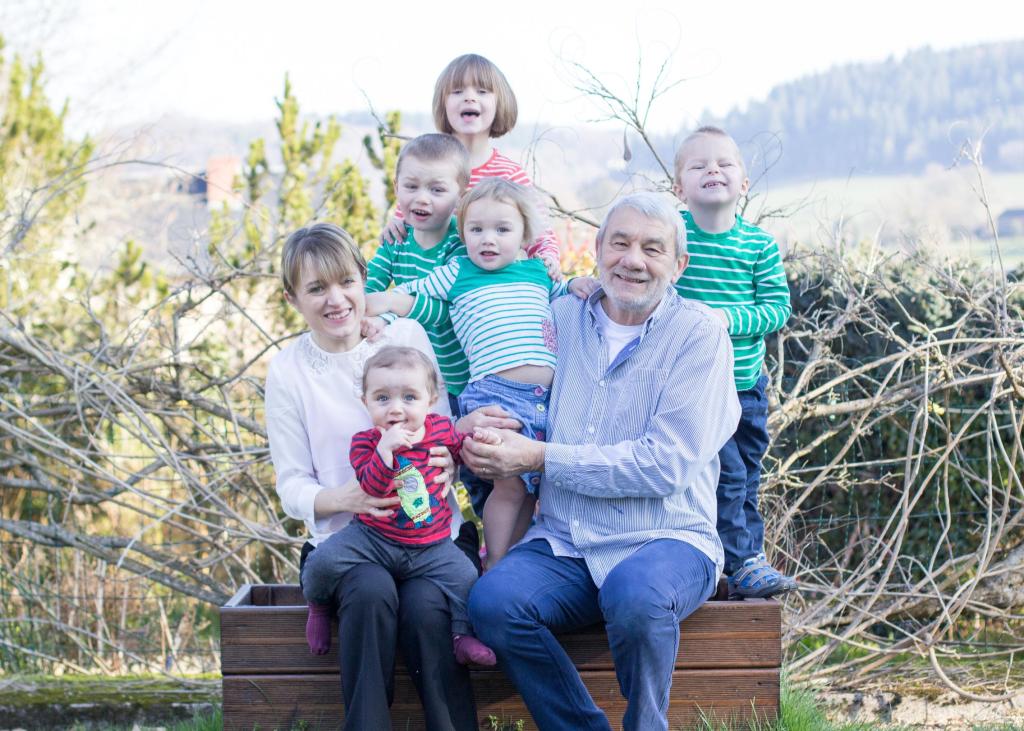Five Things I Learned from Living in France [GUEST POST]
October 20, 2022 Leave a comment

When you move around as much as we have, you will quickly discover that every community has its own rules to live by. And it doesn’t always take a move across the pond to find this out either. The rules can even change by neighborhood, and sometimes by street! Our friend, author Gillian Harvey, knows this all too well. Read today’s guest post to see which lessons she learned upon moving to another country and see if you can relate too. Enjoy! —J&H

Being a landowner is not all it’s cracked up to be
In the UK, the average garden size is 188 metres, and most new-build houses come with a postage-stamp sized plot at best. Each year, Brits like myself read through property listings in rural France with agog – houses here often have acres of land included in the price.
The problem? The idea of owning land is so enticing that many of us bite off more than we can chew. And while it may look good on paper, owning a couple of fields of grass and mud can end up being more a curse than a blessing. Grass grows fast here, so unless you’re rich enough to employ a gardener (which we are most definitely NOT) you’re going to be spending a day a week on the ride-on mower from April to October.
Gardening here is more akin to fire-fighting than leisurely bulb-planting. And all the solutions come with their share of problems – a friend of ours recently bought a couple of sheep to keep his lawn in check, only for one of them to turn aggressive and start chasing and butting him whenever he dashed to his car. Proceed with caution.

What’s the rush?
In the UK, our lives went at 100 miles per hour at all times. We rushed here, there, fit things in when we could. And we weren’t alone. With so many people under pressure to get to work/get home from work/get the kids to their club/go shopping, nobody ever seemed to have the time to stop and chat.
On the odd occasion a person in the queue at the supermarket started chatting to the cashier, they’d be met with tuts and glares until they moved on.
Here, people seem to have different priorities. They see no reason why they can’t hold up a queue, or even stop their car in the road to chat with someone they know (whilst blocking traffic). But people don’t seem to mind. It’s accepted that you meet and greet people in the street, take the time to talk to a cashier, or meander along the high street with your driver’s window down while chatting with a pedestrian friend.
It took a while to get used to, but you know what? I like it. We should never be in such a hurry that we forget to connect with others.

Eating chocolate for breakfast
The idea of having chocolate for breakfast in the UK is frowned upon (unless it’s contained in a cereal in which case it’s just about tolerated). Here in France, chocolate can be a breakfast staple and nobody will bat an eyelid. Pain au chocolate anyone? Crepe au Nutella? It might not be great for the waistline, but I do enjoy indulging my sweet tooth in the morning. After all, I’m a busy mum, I need the energy.
How do they get away with it? you might ask. Well, not everyone does. The myth of everyone in France being super-slim is just that… a myth. At the same time, certainly in my local area, people don’t seem to have the same problems with overweight and obesity as we do in the UK. And I’ve worked out two reasons that might explain why. The first is, as a rule, French people seem to have both set mealtimes and snack times. Breakfast, lunch, a gouter (snack), then dinner. You rarely see people eating in the street, or stuffing in a cake for elevenses. Perhaps regulating the diet and sticking to certain habits helps.
I’ve also noticed that French people take more time over their food. They sit down for a meal, rather than eat over their computer keyboard. They take proper lunchbreaks (often 2 hours). Once I went to the zoo and a family had brought a picnic table, tablecloth, linen, plates and cutlery and set it up in order to dine. Take food seriously and perhaps eat more mindfully and maybe you too could eat chocolate for breakfast without fear.

Life Work Balance
I read an interview recently where an English celebrity who was renovating a French holiday home struggled to get his renovations done quickly enough. He offered his (French) building team extra money to work on a Sunday, but none of them would take him up on it. Because Sunday, for them, was a family day – and family was more important than work.
It took a while to get used to when I first lived here. Businesses will often shut up shop in August (often the busiest month) to have a family break. People don’t tend to work overtime. This idea of ‘work to rule’ has the French branded as lazy. But why? Who decided that unless we’re exhausted we haven’t worked hard enough? Who says that time spent with family isn’t more valuable than time at work?
Someone somewhere once decided that a five-day working week with a two-day weekend would be the norm. I think most of us know that we could work just as efficiently in fewer hours or over fewer days if given the chance. Yet in the UK it’s not unusual for people to put in unpaid overtime, or work 6 or even 7 days a week. People seem to have forgotten what we’re working for. But the French, as a rule, work to live. And work is seen by many as secondary to living.
As a consumer, it’s taken time to adjust. Yes, sometimes it’s frustrating when a café shuts its doors for the summer, or the little local shops don’t open on a Sunday or Monday. But I’ve come to think ‘good for you.’ When we prioritise work over life, we’re all the poorer for it.

Get involved
I can only really speak for my rural corner of Limousin in France, and it may not be like this everywhere. But in a place with a low population and fewer events/facilities than in some areas, I love the way that everyone gets involved. If something’s happening locally, everyone goes. If there’s an event, locals volunteer. There’s a real sense of community and togetherness that I’ve never experienced elsewhere.
Take Bastille Day in July. My little town threw on a music concert and firework display that was free and absolutely fabulous. Locals – old and young – were conga-ing and dancing as if nobody was watching. There was a brilliant sense of connection that can only come when everyone takes the time to know each other and pitch in.
Someone said to me once: “you can’t be rude to someone in rural France, as you’ll probably come across them later in the day.” Gesticulate in a carpark? You might find the man you cursed at is your pharmacist later in the day. Cut in front of someone at a supermarket? They might be your doctor. There’s a sense of accountability and togetherness and I for one find it absolutely wonderful.
It’s these elements I tried to weave into Lily’s experience in my latest novel, A Year at the French Farmhouse. The culture clashes, the surprises, the funny moments and misunderstandings that come when people think differently about life and how to live it. And what happens, too, when you open your eyes, learn from others and embrace the good you see around you.

Escape to France with this warm, witty romantic read.
After ten years of loyal service Lily Butterworth has been made redundant. Like any clever woman, she knows the cure to redundancy is a little too much wine and her best friend.
Only the next morning, Lily has more than a hangover . . . she has a whole new house – in France!
Seeing this as an opportunity instead of a disaster, she’s excited about finally moving to France, just as she and her husband always dreamed of. However, Lily is in for another surprise. Despite planning to move there for over 20 years, her husband never actually intended to go.
So begins a year in France, alone, renovating the gorgeous old farmhouse that is held together by wallpaper and wishes.
Will a year at the French farmhouse be just what Lily needs? Or could it be the previous owner, Frederique, that is the answer to Lily’s dreams?

“Chase your dreams and follow your heart! I loved it!”
Heidi Swain

“A gorgeous escapist story of second chances. I loved it.”
Alex Brown

“Unputdownable. A Year at the French Farmhouse is the ultimate feel-good novel. I was right there with the characters, soaking up the atmosphere, rooting for Lily and willing for everything to turn out right.”
Paula Greenlees

“The perfect feel-good read. Uplifting, touching and really quite hilarious. It’s like going on holiday without leaving the house.”
Tim Ewins

Gillian Harvey writes nonfiction articles for UK magazines and newspapers, as well as short stories for several different publications.
Her debut novel, Everything is Fine, published in January 2021 in the US was praised as “hilarious, heartwarming, and relatable” (NEW! Magazine). Her second novel, Perfect on Paper, released a year later and was called “a perfect weekend read” (Grazia) and “just the escapism we need right now” (Evening Standard).
She lives in France with her long-suffering husband Ray and their five children: Lily, Joe, Tim, Evie and Robbie.
To find out more, visit GillianHarvey.com, like her on Facebook, or follow her on Twitter and Instagram.
A YEAR AT THE FRENCH FARMHOUSE
By Gillian Harvey
378 pp. Boldwood Books. $17.99
Purchase A Year at the French Farmhouse on Amazon | Barnes & Noble | Books-A-Million | Half Price Books | Hudson Booksellers | IndieBound | Powell’s.




